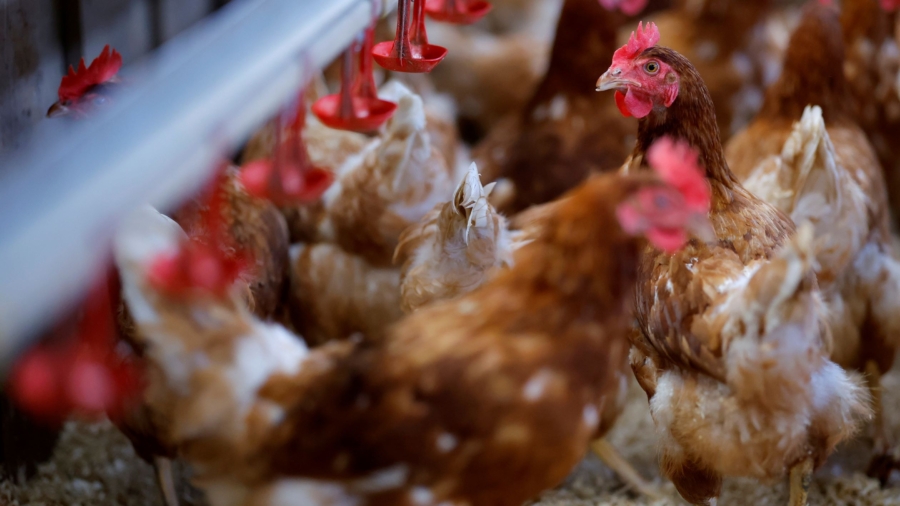PARIS—France has put the country on “high” alert for bird flu, forcing poultry farms to keep birds indoors to contain the spread of the highly contagious disease, the agriculture ministry said on Thursday.
The European Union’s second largest poultry producer has detected a fresh rise in bird flu outbreaks in the past months after this year seeing its worst-ever wave of the disease, with about 22 million birds culled.
Between Aug. 1 and Nov. 8, 49 outbreaks of highly pathogenic avian influenza (HPAI), commonly called bird flu, were detected on French farms, with a large and rising number of cases found in domesticated fowl in backyards and among wild birds, the ministry said.
“In a context marked by the unprecedented persistence of the virus in the environment and strong migratory activity of wild birds, it is essential to strengthen preventive measures to avoid contamination of poultry farms,” it said in a statement.
Although the virus is harmless in food, its spread is a concern for governments and the poultry industry due to the devastation it can cause to flocks, the possibility of trade restrictions, and a risk of human transmission.
The “high” risk level, which was previously set at “moderate,” implies that all poultry should be kept inside on farms and additional security measures taken, including for hunting, to avoid a spread of the disease.
Europe has experienced its worst bird flu crisis ever this year, with nearly 50 million head of poultry culled, and the persistence of the virus over the summer has raised the risk of widespread infections next season, the EU’s Food Safety Agency (EFSA) said last month.
Bird flu usually strikes during the autumn and winter months. It is transmitted by infected feces from migrating wild birds or direct contact with contaminated feed, clothing, and equipment, or in the air.

